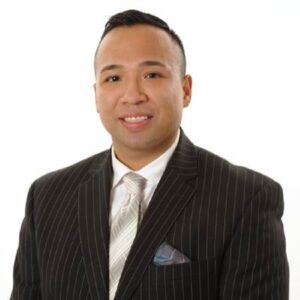APBA co-hosts webinars on Indigenous themed climate solutions

By Sam Laskaris
FORT WILLIAM FIRST NATION – Jason Rasevych is not only encouraged that Indigenous communities are making a difference but he’s also thrilled about the prospect of what they can do in the future.
Rasevych is the president of the Anishnawbe Business Professional Association (ABPA), which co-hosted the first of a series of webinars on Jan. 29.
Three webinars are planned in the series, which is co-hosted by the Conservation Through Reconciliation Partnership. They will focus on natural climate solutions by having several representatives share their stories and knowledge about various projects, with a focus on Indigenous perspectives, happening in Canada.
Rasevych, who launched the ABPA in 2019, moderated the Jan. 29 webinar.
“It’s inspiring to see First Nations here in Ontario take forest tenure and then bring that back to the community level and think about all the other opportunities that are coming,” Rasevych said. “And when we see the carbon tax, when we see climate change and when our Indigenous communities are in a position to do something about it, it’s a very empowering process.”
Steven Nitah, a member of the Conservation Through Reconciliation Partnership’s Leadership Team and a former Chief of the Lutsel K’e Dene First Nation in the Northwest Territories, is confident great things can be achieved with some collaboration.
“With carbon offsets and positive relationships between Crown and Indigenous governments, where policies support the works of Indigenous peoples in managing their territories for the benefit of all, I think we can achieve reconciliation, we can achieve creating economic sustainability [and] recover from this pandemic,” he said.
Nitah, who is also a senior advisor with the Indigenous Leadership Initiative, added it would be beneficial if the country’s economic recovery plan included opening up the marketplace globally to engage worldwide corporate interests in carbon offset opportunities.
During the webinar, panelists were asked what needs to happen to move projects forward, from concept to development, and whether offsets are a useful tool for Indigenous communities and for those serious about addressing climate change.
“I believe the answer is yes, that these are a very important tool,” said Joseph Pallant, the director of climate innovation for Ecotrust Canada. “One of the ways that I really conceptualize offsets is that they are a tool to bring the future closer to the present. They are a way to be financing and enabling the projects that keep carbon out of the atmosphere that we know are going to be critical for our survival as a species and as a planet and as a biosphere.”
Chris Angeconeb, a member of Lac Seul First Nation and the president of AurCrest Gold Inc., spoke of initiatives in his community and nearby First Nations.
Angeconeb was asked what steps need to be taken in order to offset in either forested areas or other projects with Lac Seal First Nation.
“There needs to be a general understanding at a grassroots [level] right up through the political chambers of a common understanding of what the implications of all of this are and how everybody can derive a long-term carbon footing,” he said.
Other speakers during the webinar included David Flood, the general manager of the Wahkohtowin Development GP Inc., Colin Shawinimash, the general manager of the Agoke Development Corporation, Amanda Reed, the director of strategic partnerships for Nature United, and Jamie MacKinnon, the vice-president of Bluesource.
The second webinar in the series co-hosted by the ABPA and the Conservation Through Reconciliation Partnership is scheduled for Mar. 26.


